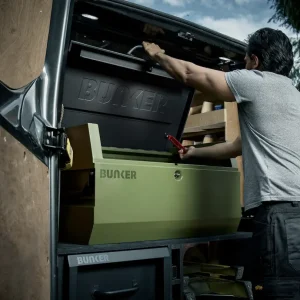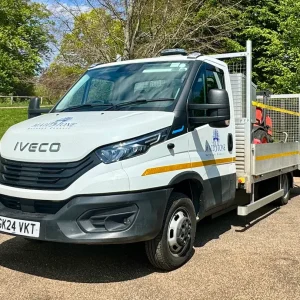Reducing their impact on the environment is the number one factor in UK van fleets going electric, closely followed by cost advantages, according to leasing company Arval.
The company’s Mobility Observatory Barometer survey of fleet decision makers found that, when asked what their motivation was for alternative fuel adoption, 55% named the lower environmental impact of EVs, ahead of 51% for tax incentives, and 50% for both total cost of ownership benefits, and reducing fuel expenses.
Other factors included improvement of company image, named by 40% of those surveyed, and being able to drive in low emission zones, named by 38%.
The survey also asked businesses whether they already operated full battery electric vans or were planning to do so within the next three years. In total, 9% said they already did, while 47% said they would acquire them.
Head of the Arval Mobility Observatory in the UK Shaun Sadlier said: “These figures show how electrification in van fleets is still very much in its infancy, but also how quickly operators expect that process to get underway. By 2025, almost half expect to have at least some electric vans.
“The reasons for that speed of adoption are varied but convincing. The environment, CSR objectives and being seen to do the right thing in this sense are clearly major incentives.
“More and more businesses are working towards a net zero target and bringing light commercial vehicle fleets into line with this aim is essential. Electric vans are often the keystone of these strategies.”
Sadlier said it was very interesting to see how awareness of the cost advantages of operating electric vans were becoming acknowledged among fleet operators.
He said: “Half of them say both that total cost of ownership is in line or lower than petrol or diesel vehicles and that there are fuel savings to be accessed. For commercial fleets, that are very much driven by cost considerations, these are major incentives in the transition to electric power.
“Finally, there is also clearly a feeling that government at local and national level will aim to limit movements of petrol and diesel vehicles in the future, with low emission zones and future restrictive policies being mentioned by respondents. They believe that operating electric vans will become a prerequisite to maintaining future access to areas where clean air strategies are being pursued, it appears.”





